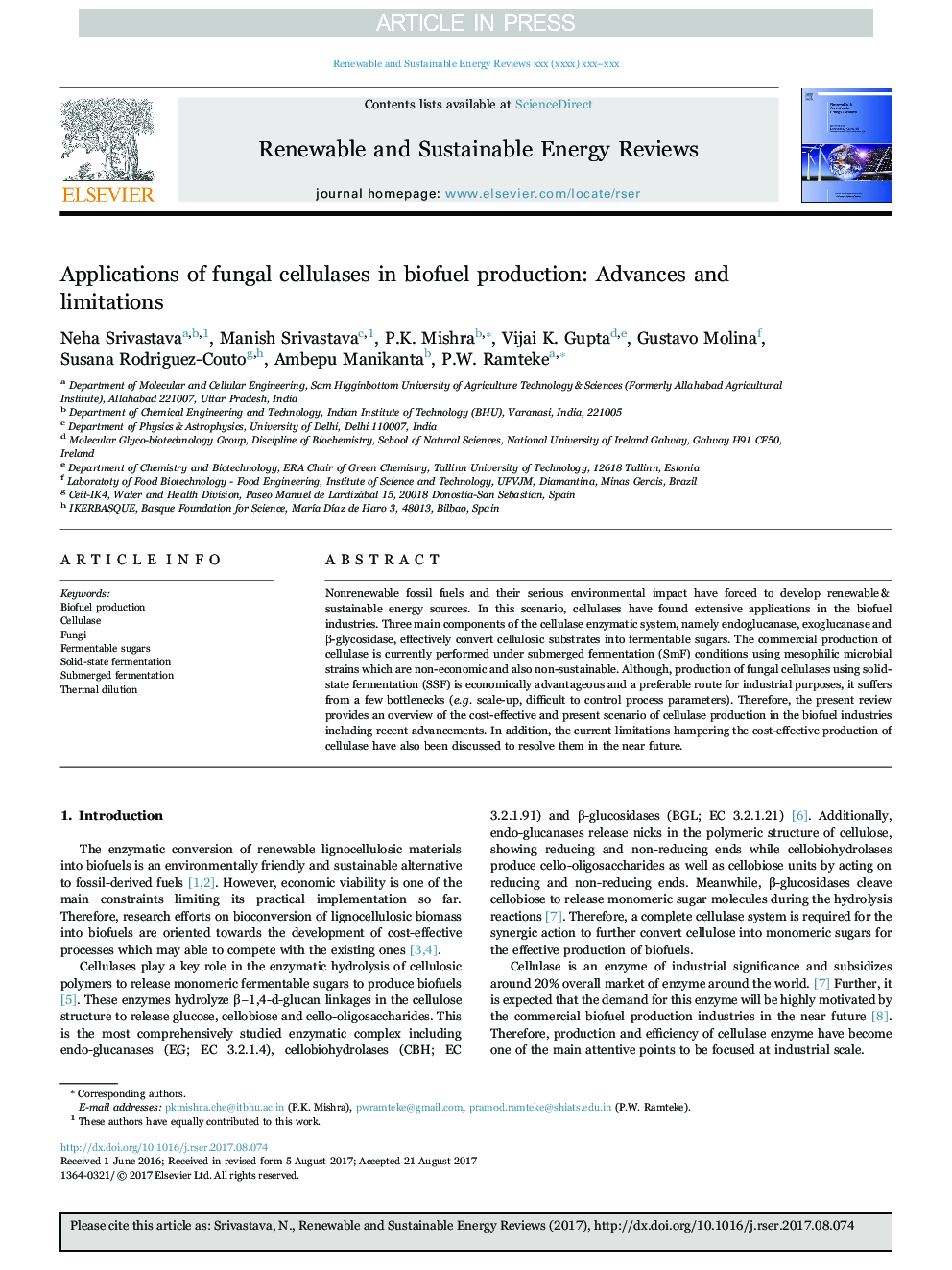| Article ID | Journal | Published Year | Pages | File Type |
|---|---|---|---|---|
| 8111808 | Renewable and Sustainable Energy Reviews | 2018 | 8 Pages |
Abstract
Nonrenewable fossil fuels and their serious environmental impact have forced to develop renewable & sustainable energy sources. In this scenario, cellulases have found extensive applications in the biofuel industries. Three main components of the cellulase enzymatic system, namely endoglucanase, exoglucanase and β-glycosidase, effectively convert cellulosic substrates into fermentable sugars. The commercial production of cellulase is currently performed under submerged fermentation (SmF) conditions using mesophilic microbial strains which are non-economic and also non-sustainable. Although, production of fungal cellulases using solid-state fermentation (SSF) is economically advantageous and a preferable route for industrial purposes, it suffers from a few bottlenecks (e.g. scale-up, difficult to control process parameters). Therefore, the present review provides an overview of the cost-effective and present scenario of cellulase production in the biofuel industries including recent advancements. In addition, the current limitations hampering the cost-effective production of cellulase have also been discussed to resolve them in the near future.
Keywords
Related Topics
Physical Sciences and Engineering
Energy
Renewable Energy, Sustainability and the Environment
Authors
Neha Srivastava, Manish Srivastava, P.K. Mishra, Vijai K. Gupta, Gustavo Molina, Susana Rodriguez-Couto, Ambepu Manikanta, P.W. Ramteke,
